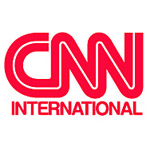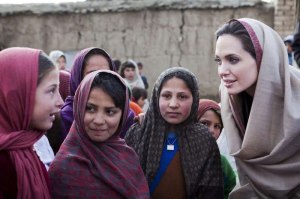The CNN Effect, how much influence does it have on foreign policy?
The Cable News Network, is a television network that instantly transmits images and information informing the public of contemporary events on a global scale. The CNN effect regards the use of the network by providing instant images that will cause public to react which forces government official to shape and reshape foreign policies regarding to these issues that the public has become aware of. The CNN effect has cause a loss of policy control by policy makes because the media has become extensively more powerful. Information has been available everywhere before the 24/7 CNN news cycle, however, through the media system, it has encouraged the public to become more aware of this information by it begin broadcasted every hour of every day. Therefore, the public has increasingly intelligence of issues, such as military operations, or humanitarian activities, occurring and causing government officials to act fast in order to please and comfort the public. The images broadcasting on the CNN regard usually a display of famine or horror, as well as, broadcasting events, such as the Somalian Civil War or the 1990-1992 Gulf War, which causes organisations joined by the United States government to act speedily in order to generate the media attention and government action. Otherwise, a backlash of the general public will cause riots. If the government does not involve itself in these events the public might question the government why it will not aid these suffering people
The CNN makes it more difficult for policy makers as it encourages officials to make more, quick decisive decision and challenges the administration. The CNN covers news all over the world and extremely quickly, this causes the news to quickly arrive at policy makers which then do not have to wait before making any new policies or decisions. Traditionally, it took a long time to receive information from abroad and therefore, the CNN effect has provided a useful platform of information used by government official. Furthermore, the government officials also use the publics opinions to shape their public perceptions which provides them with a large and variety of perceptions to take into account when adjusting or shaping new policies.
It is believed that the CNN dictates what is on the foreign policy agenda. The media usually indicates the priorities of the news. The relations between media attention and government action causes organisations such as relief agencies to show more interests and provide more aid to these issues and war zones. For example, throughout the 1992, both in Somalia and in southern Sudan there was equal suffering. However, the Bush administration forced the media to involve a lot more in Somalia as television cameras were available there. The government aided the journalists to get there and right after Bush decided to begin an airlift to Somalia. If it had not been for Bush involvement in Somalia the CNN would not have been that interested in doing independent reporting, but it proved to be much more interesting when the U.S. provided aid towards Somalia.
The CNN effect has proven that televised images of suffering people force officials to intervene. It is believed that the exposure of suffering images pressurises the U.S. government to act. If the government is seen not to support or supply aid to suffering it causes the general public to bring awareness of the lack of support the government is providing for these states. However, there is a difference, pictures portraying female refugees or malnourished children have a larger effect than pictures portraying civil wars. For example, in 1994, the images portrayed of half a million slaughtered people in Rwanda did not cause governments to act or intervene with force or troops. Yet, after the brutality ended and fleeing of refugees came, the issue became humanitarian and the U.S. military send well-equipped people to solve the issue.
Can the government officials adapt the CNN effect? It lies in the hands of government officials to change the CNN Effect. Some say that it has change over time, however, some also debate that it was already set to change before the establishment of the CNN effect. It is difficult to say that it is due to the fact that the CNN has broadcasted and brought awareness to certain topics and in result the government officials in response have sent troops and military aid. There is also the option that the government already planned these tactics of sending troops and military aid before the media brought attention to these topics. Nevertheless, the complex of the CNN effect has been cause by the conflicts in the world. It is difficult to say that the reporters rely on the government or that the government relies on the news.
References
- Strobel, W., 1996, The CNN Effect, http://ajrarchive.org/Article.asp?id=3572, accessed on 02/05/2015.
- Robinson, P., The CNN Effect Reconsidered: mapping a research agenda for the future, Media, War and Conflict, Vol. 4, no. 1, 3-11, 2011.
- Robinson, P., The CNN effect: can the news media drive foreign policy, Review of International Studies, 25/2 : 301-309, 1999.




